10 Best Herbal Essential Oils For Eczema

Herbal essential oils, such as chamomile, lavender, and tea tree oil, have been traditionally used to alleviate symptoms of eczema due to their anti-inflammatory and antimicrobial properties.
These oils can help reduce redness, itching, and skin irritation when properly diluted and applied topically. However, it is important to note that essential oils should never be applied directly to the skin without dilution, as they can cause irritation or allergic reactions. Many people with eczema find relief through aromatherapy or massage with these oils, often combined with moisturizers or carrier oils.
It is recommended to consult a healthcare professional before incorporating essential oils into an eczema treatment regimen to ensure safety and effectiveness.
Table of Contents
- 1. English lavender (Lavandula angustifolia)
- 2. Melaleuca (Melaleuca alternifolia)
- 3. Stinging nettle (Urtica dioica)
- 4. Eucalyptus (Eucalyptus globulus)
- 5. Chamomile (Matricaria chamomilla)
- 6. Dog rose (Rosa canina)
- 7. Yarrow (Achillea millefolium)
- 8. Italian cypress (Cupressus sempervirens)
- 9. Aloe vera (Aloe barbadensis)
- 10. St. john's wort (Hypericum perforatum)
1. English lavender (Lavandula angustifolia)

Lavandula angustifolia, commonly known as English lavender, is widely recognized for its calming and therapeutic properties, particularly when used in the form of essential oil.
This essential oil is known for its anti-inflammatory and antimicrobial properties, making it a popular choice for managing symptoms of eczema. When applied topically, lavender essential oil can help reduce redness, itching, and skin irritation associated with eczema. It is often diluted with a carrier oil before use to prevent skin irritation.
Studies suggest that the soothing aroma and bioactive compounds in lavender essential oil may support skin healing and improve overall skin health in individuals with eczema.
2. Melaleuca (Melaleuca alternifolia)

Melaleuca alternifolia, commonly known as tea tree oil, is a popular essential oil derived from the leaves of the Melaleuca alternifolia plant, native to Australia.
It is widely used in natural remedies for its potent antimicrobial, anti-inflammatory, and antioxidant properties, making it a valuable option for managing eczema symptoms. When diluted properly, tea tree oil can help reduce skin irritation, redness, and infection risk associated with eczema flare-ups. However, it should always be used with caution, as undiluted application may cause skin irritation or allergic reactions.
Many individuals with eczema find relief through regular, gentle use of tea tree oil in moisturizers or topical treatments, though it is best used as part of a comprehensive skincare routine under professional guidance.
3. Stinging nettle (Urtica dioica)

Urtica dioica, commonly known as stinging nettle, contains essential oils that have been studied for their potential benefits in managing eczema.
These oils are rich in anti-inflammatory and antioxidant compounds, which may help reduce skin irritation and redness associated with eczema. When used topically, the essential oils from Urtica dioica can soothe the skin and potentially alleviate symptoms such as itching and dryness. However, it is important to dilute the oils properly before applying them to the skin to avoid irritation.
While some preliminary research suggests promise, more clinical studies are needed to fully understand their efficacy and safety for eczema treatment.
4. Eucalyptus (Eucalyptus globulus)

Eucalyptus globulus, commonly known as blue gum eucalyptus, is a popular source of essential oil that is often used in natural remedies for eczema due to its antimicrobial and anti-inflammatory properties.
The essential oil contains compounds like cineole, which can help reduce skin irritation and inflammation associated with eczema. However, it should be used with caution, as some individuals may experience skin sensitivity or allergic reactions to its strong aromatic compounds. When diluted properly with a carrier oil, eucalyptus globulus essential oil can be applied topically to soothe redness and dryness.
It is recommended to consult a healthcare professional before using it, especially for those with severe eczema or sensitive skin.
5. Chamomile (Matricaria chamomilla)
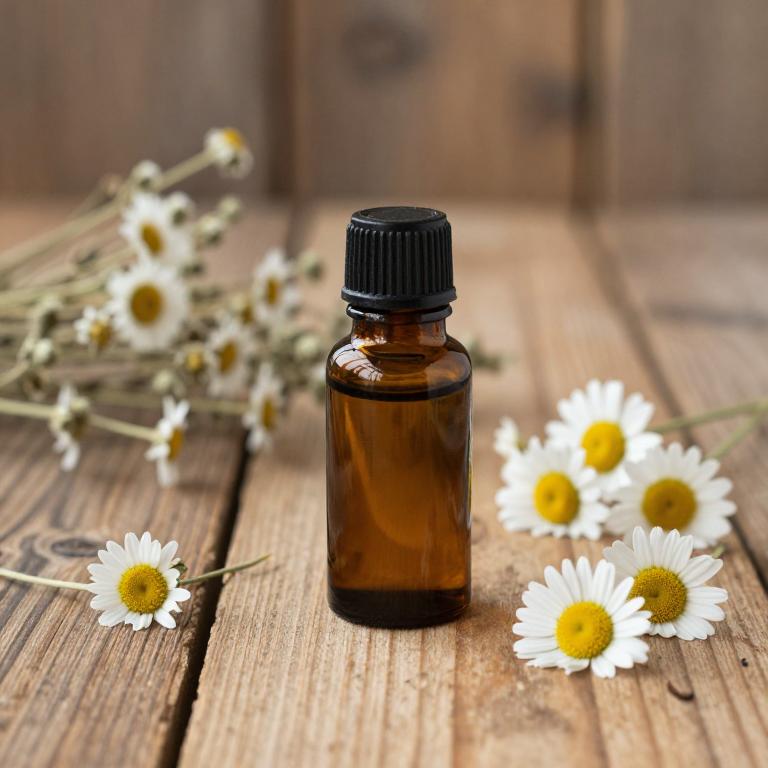
Matricaria chamomilla, commonly known as chamomile, is a widely used herb in aromatherapy and natural medicine for its soothing and anti-inflammatory properties.
Its essential oil, derived from the flowering tops of the plant, contains compounds like alpha-bisabolol and chamazulene, which are known for their calming and skin-soothing effects. Chamomile essential oil is often recommended for eczema due to its ability to reduce redness, irritation, and inflammation associated with the condition. When diluted properly with a carrier oil, it can be applied topically to provide relief and promote skin healing.
However, it is important to perform a patch test first, as some individuals may be allergic to chamomile, and it should not be used internally without professional guidance.
6. Dog rose (Rosa canina)
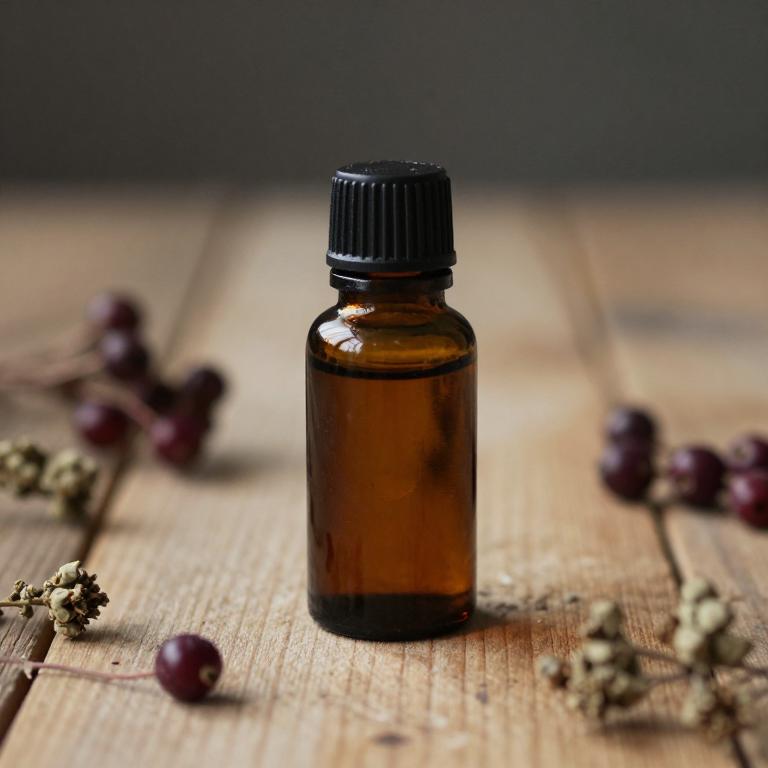
Rosa canina, also known as rose hip, is a plant rich in essential oils that have shown potential in the treatment of eczema due to their anti-inflammatory and antioxidant properties.
These essential oils contain compounds such as carotenes, tocopherols, and flavonoids, which help to reduce skin irritation and promote healing. When used topically, Rosa canina essential oils may help to soothe inflamed skin and improve overall skin texture in individuals with eczema. However, it is important to dilute the essential oils properly before application to avoid skin irritation.
While preliminary studies suggest benefits, more research is needed to fully understand its efficacy and long-term effects on eczema management.
7. Yarrow (Achillea millefolium)
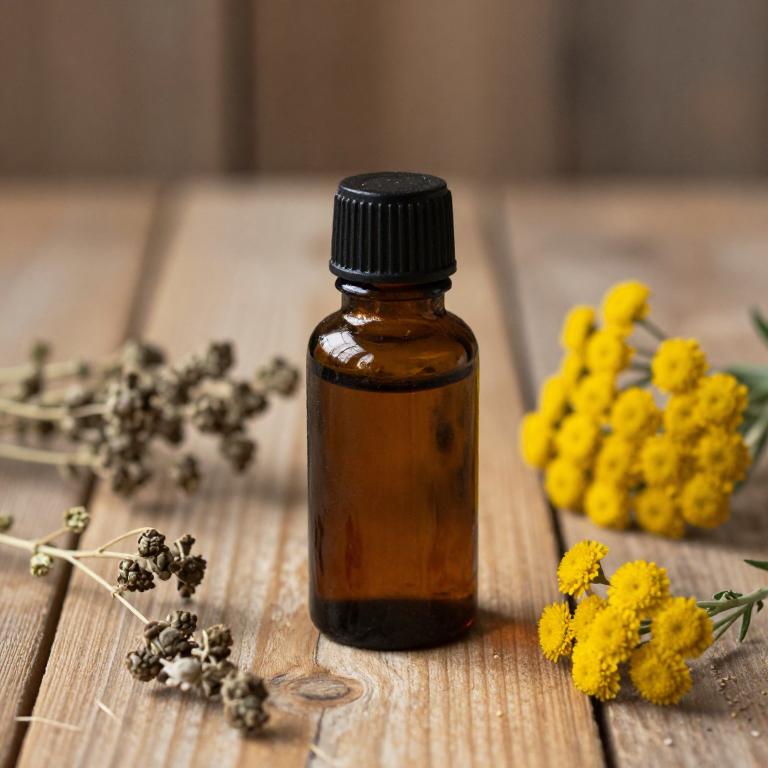
Achillea millefolium, commonly known as yarrow, contains essential oils that have been traditionally used for their anti-inflammatory and antimicrobial properties.
These essential oils may help alleviate the symptoms of eczema by reducing skin irritation and redness. The primary components, such as chamazulene and bisabolol, contribute to its soothing effects on sensitive skin. However, it is important to dilute the essential oil properly before applying it to the skin to avoid irritation.
While some studies suggest potential benefits, more research is needed to fully understand its efficacy for eczema treatment.
8. Italian cypress (Cupressus sempervirens)
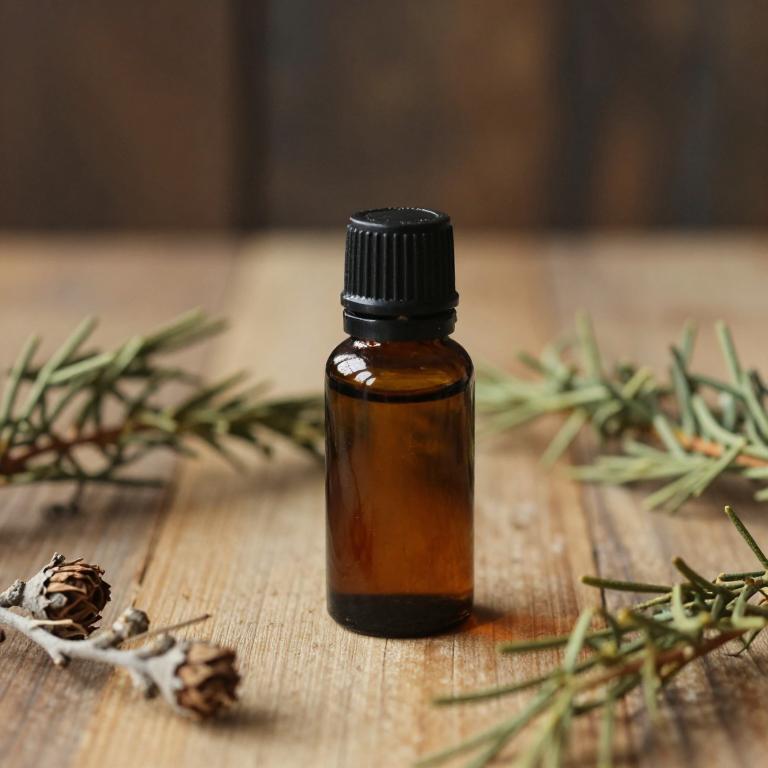
Cupressus sempervirens, commonly known as Italian cypress, produces an essential oil that has been explored for its potential benefits in managing eczema.
The oil contains compounds such as alpha-pinene and beta-pinene, which possess anti-inflammatory and antimicrobial properties that may help soothe irritated skin. When used in diluted form, Cupressus sempervirens essential oil can be applied topically to reduce redness and itching associated with eczema. However, it is important to perform a patch test and consult a healthcare professional before using it, as individual sensitivities can vary.
While some studies suggest its efficacy, more research is needed to fully understand its role in eczema treatment.
9. Aloe vera (Aloe barbadensis)
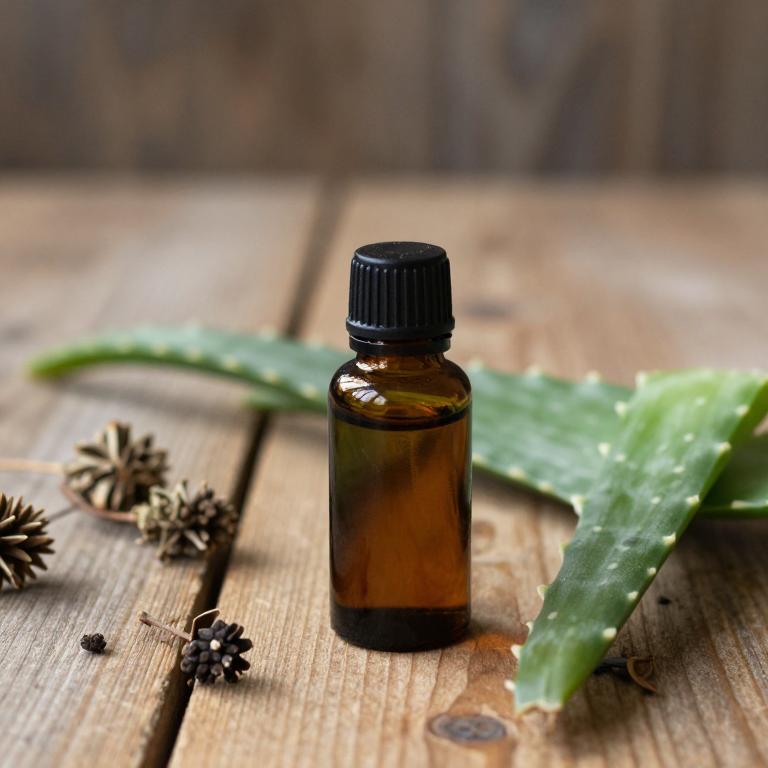
Aloe barbadensis, commonly known as aloe vera, contains a variety of bioactive compounds that make it beneficial for eczema treatment.
Its essential oils, derived from the gel of the plant, possess anti-inflammatory, antimicrobial, and moisturizing properties that can help soothe irritated skin. These oils may reduce redness, itching, and dryness associated with eczema by promoting skin healing and barrier repair. When used topically, aloe barbadensis essential oils can provide a natural alternative to conventional treatments, offering relief without harsh side effects.
However, it is important to ensure proper dilution and consult a healthcare professional before incorporating it into an eczema management routine.
10. St. john's wort (Hypericum perforatum)
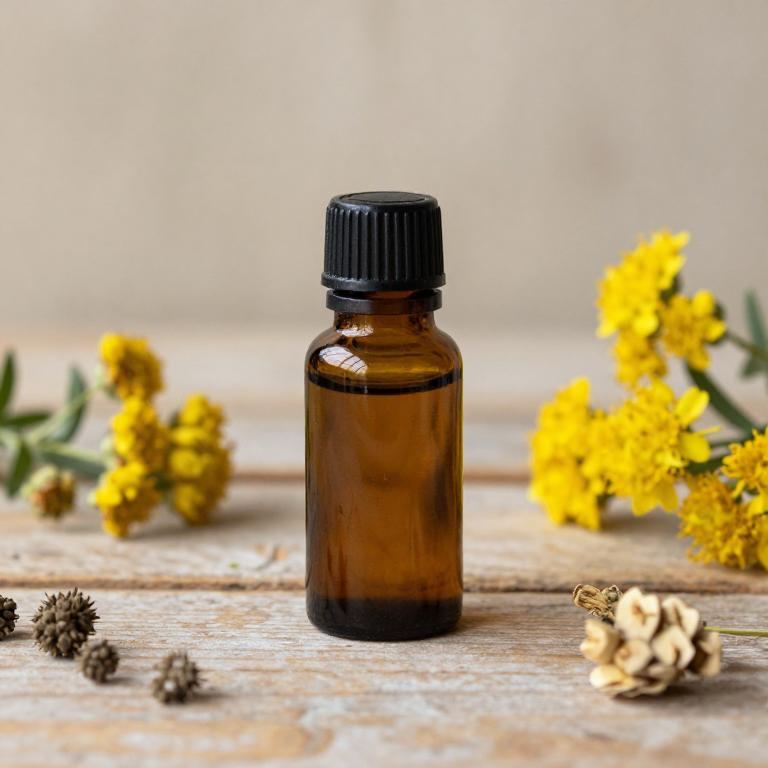
Hypericum perforatum, commonly known as St. John's Wort, is a herbal plant that has been traditionally used for its potential therapeutic properties.
While primarily known for its use in treating mild depression, its essential oils have also been explored for their anti-inflammatory and antimicrobial effects, which may benefit individuals with eczema. The essential oils of Hypericum perforatum contain compounds such as hyperforin and hypericin, which are believed to have soothing properties that can help reduce skin irritation and redness. However, it is important to note that the use of St. John's Wort essential oils for eczema should be approached with caution, as they may interact with certain medications and cause skin sensitization in some cases.
As with any complementary treatment, it is advisable to consult a healthcare professional before incorporating Hypericum perforatum essential oils into an eczema management plan.